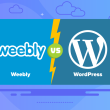A parked domain refers to a registered domain name that is not associated with any website content or email services. Instead, it serves as a placeholder or landing page, displaying generic content provided by the domain registrar or hosting provider. Essentially, when a domain is parked, it is inactive in terms of hosting any specific website content.
Understanding parked domains is crucial for anyone involved in domain registration, website development, or online business. So, let’s get into the details.
What is Parked Domain?
A parked domain is like an empty lot in the digital world. It’s a domain name that someone has registered but hasn’t linked to a website or email service yet. Instead of displaying specific content, a parked domain typically shows a basic page provided by the domain registrar or hosting company. This page might have a message saying the domain is parked or could include advertisements.
How Parked Domains Differ from Active Websites?
Active websites have content and functionality tailored to a specific purpose. They might contain articles, products for sale, or interactive features like forms or forums. In contrast, parked domains lack this content and are essentially placeholders until they are developed into active websites. These domains don’t have unique content related to a particular topic or business—they’re just generic pages that indicate the domain name is taken but not yet in use.
Common Misconceptions
Some people mistakenly believe that domains are websites with unfinished designs or broken links. In reality, parked domains are intentionally left blank until the owner decides what to do with them.
Another misconception is that these domains are automatically generating revenue. While some owners may monetize domains through advertising, not all domains generate income.
There’s also a misconception that these domains are temporary. While some may be secured temporarily during development or between ownership changes, others remain parked for extended periods.
How Parked Domains Work?
Parked domains work by pointing the domain name to a specific server or hosting provider. When someone types the domain name into their web browser, the domain’s DNS (Domain Name System) settings direct them to the shared server where the parked page is hosted. The server then displays the default parked page associated with that domain. Behind the scenes, the domain registrar or hosting provider manages the technical aspects of routing traffic to the parked page.
Domain Parking Services
Domain parking services are offered by domain registrars or specialized companies that provide a platform for owners to secure their domains. These services typically include tools for management, such as customizing the page, tracking traffic statistics, and monetizing the domain through advertisements or affiliate marketing. Its services may also offer additional features like domain appraisal, auctioning, and sales platforms for those looking to buy or sell domains.
Domain Forwarding vs Parking
Domain Forwarding, also known as domain redirection, involves directing traffic from one domain to another. This is commonly used when a website has moved to a new domain or when multiple domain names point to the same website. In contrast, domain parking involves displaying a generic page on a domain that does not yet have specific website content. While domain forwarding directs visitors to an existing website, domain parking creates a placeholder page for a domain that is not actively used for a website.
Ready to Park Your Domain?
Unlock the potential of parked domains now! Maximize your online presence, generate passive income, and protect your brand. Click here to learn more and get started on your journey to online success!
Benefits and Drawbacks of Parked Domains
Advantages
- These domains offer a cost-effective solution for maintaining an online presence without the expense of hosting and developing a full website.
- You can generate passive income through advertisements or affiliate links displayed on the parking page. While the revenue generated may vary depending on factors such as traffic volume and advertiser demand, they offer a potential source of income with minimal effort required from the domain owner.
- By parking domains related to their brand or industry, companies can increase their online visibility and protect their brand identity. They can serve as additional entry points for potential customers to find the company’s website, improving brand recognition and driving traffic to the main site.
Limitations
- These domains can be susceptible to misuse by cyber squatters who register domains with the intent to profit from the brand or trademark of others. This can lead to legal disputes and tarnish the reputation of legitimate businesses if domains are used for fraudulent or deceptive purposes.
- Domains with minimal or generic content may not rank well in search engine results, potentially affecting the overall SEO (Search Engine Optimization) performance of the domain owner’s online presence. Without relevant and valuable content, you may struggle to attract organic traffic and achieve high search engine rankings.
- Visitors may encounter a poor user experience if the parking page is cluttered with excessive advertisements or lacks useful information. A poorly designed page can frustrate visitors and diminish the owner’s credibility, leading to a negative impression of the brand.
Examples and Use Cases

Individual Investors
Individual investors often acquire domains with the intention of parking them as a form of investment. They may purchase domains that they believe have potential value, either due to their relevance to popular trends, industries, or potential future businesses. By parking these domains, investors can hold onto them until they find a buyer willing to pay.
Businesses
Businesses may park domains as part of their branding and marketing strategy. They might register multiple variations of their brand name or industry-specific keywords to prevent competitors from acquiring them or to capture additional traffic. Domains can also be used to redirect visitors to the company’s main website or to create landing pages for specific marketing campaigns.
Domain Flippers
Domain flipping is buying and selling domains for profit. They may acquire undervalued domains, park them to attract potential buyers, and then sell them at a higher price. Domains can act as virtual storefronts, showcasing the domain’s potential value and attracting interested buyers. Domain flippers often use parking platforms to monetize their domains while waiting for the right buyer.
How to Park a Domain Name?
Here is a step-by-step guide for you:
- Register or acquire a domain name: Begin by registering a new domain name or acquiring an existing one.
- Access domain management settings: Log in to your domain registrar’s account. Now, locate the management settings for the domain you wish to park.
- Update DNS settings: Modify the DNS (Domain Name System) settings to point the domain to the parking provider’s servers.
- Choose a template: Select a template or default page provided by the parking service to display on your domain.
- Set up monetization options: Configure monetization options such as displaying ads or affiliate links to generate income from the domain.
Choosing a Domain Parking Service
- Research available options: Explore different services and compare features, pricing, and reputation.
- Consider monetization opportunities: Look for services that offer opportunities to monetize your domains through advertising or affiliate programs.
- Evaluate customer support: Choose a parking service with responsive customer support to address any issues or concerns that may arise.
- Check payment terms: Review the payment terms and commission rates offered by the parking service. So that they align with your financial goals.
Best Practices for Parked Domain Management
- Monitor traffic and performance: Regularly track statistics and performance metrics for your domains to assess their effectiveness and make adjustments.
- Update content periodically: Keep your domains fresh and engaging by updating content, refreshing designs, and testing different monetization strategies.
- Renew domain registration: Ensure that your domains remain active by renewing the domain registration before they expire to avoid losing ownership.
- Stay informed: Stay up-to-date on industry trends, domain market values, and best practices for management. It will maximize the potential of your portfolio.
- Protect against misuse: Take proactive measures to safeguard your domain privacy and avoid misuse such as unauthorized transfers or trademark infringement.
Conclusion
In short, these domains are valuable assets for individuals and businesses alike. It offers cost-effective solutions for maintaining an online presence, generating passive income, and protecting brand identity. Despite potential drawbacks, such as misuse and SEO implications, understanding best practices for domain management can optimize their performance.
Stay proactive in implementing security measures, from domain registrar security to SSL encryption. Explore Ultahost’s SSL Certificate solutions to fortify your website’s security further. Protect your domain with confidence.
FAQ
What happens when a domain is parked?
When a domain is parked, it serves as a placeholder without hosting any specific website content. Instead, visitors may see a default page provided by the domain registrar or hosting provider.
What are the benefits of parking a domain?
It offers several benefits, including passive income generation through advertisements or affiliate links displayed on the parking page and brand visibility by capturing additional traffic and protecting brand identity.
Can parked domains affect SEO?
Yes, it can potentially impact SEO (Search Engine Optimization) efforts. If the page contains thin or low-quality content, it may not rank well in search engine results pages.
How long can a domain be parked?
There is no specific time limit for how long a domain can be parked. Domain owners can park their domains for as long as they like.












